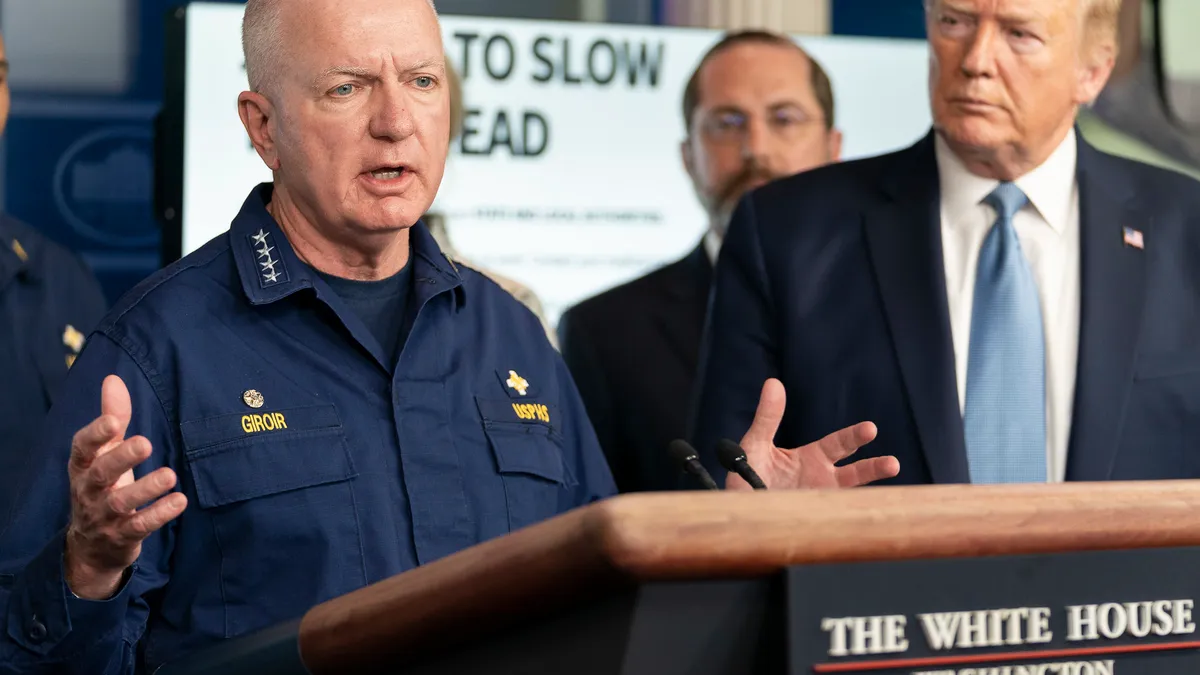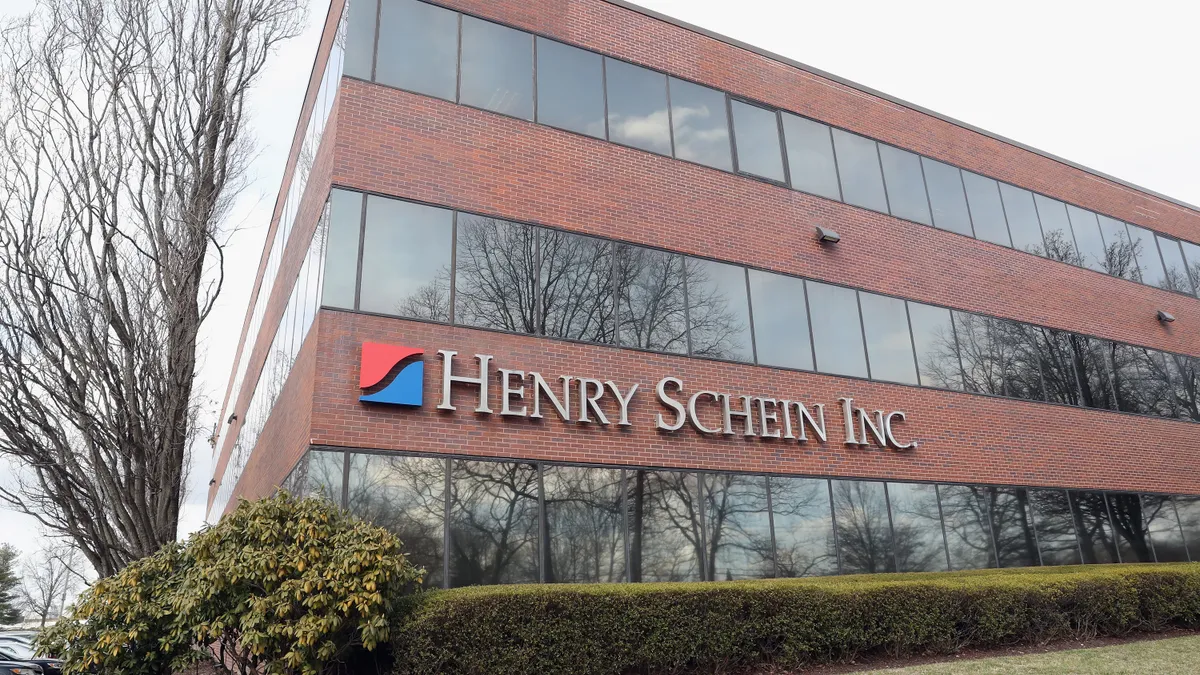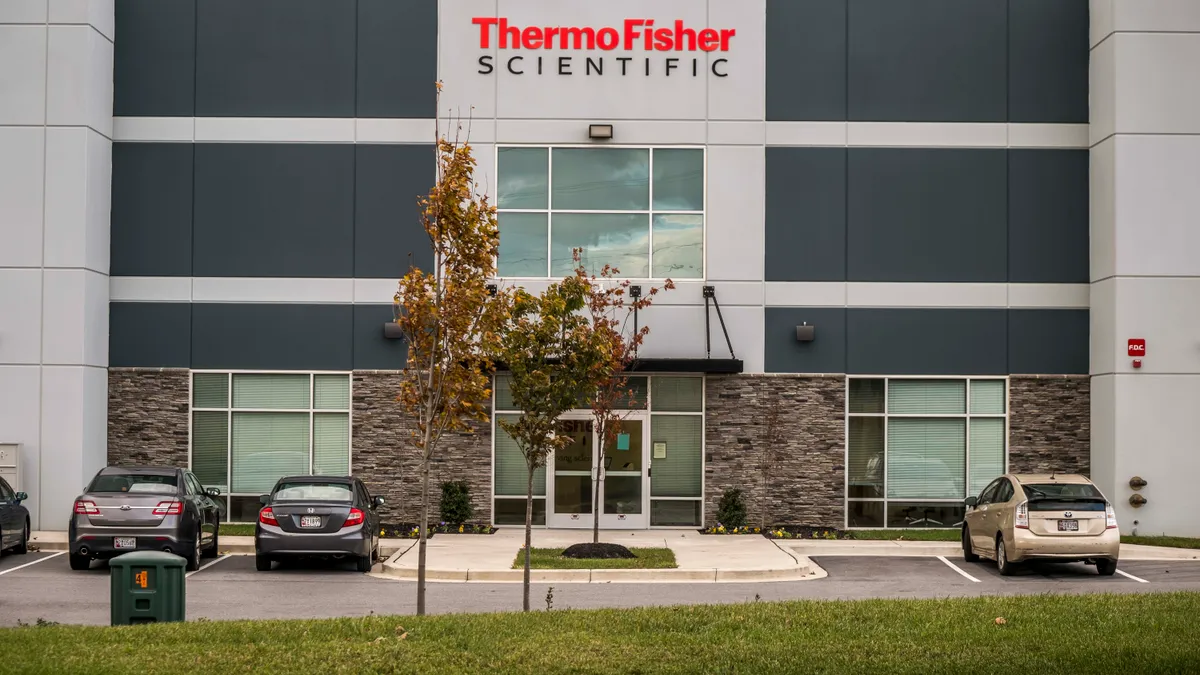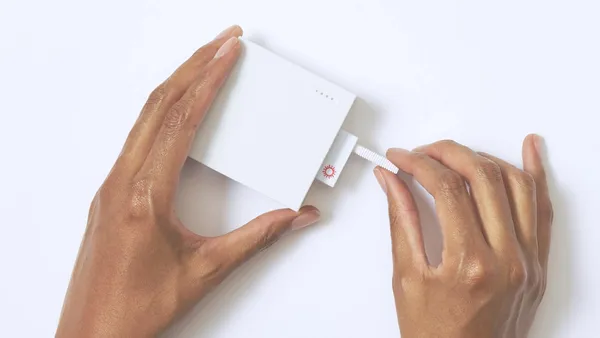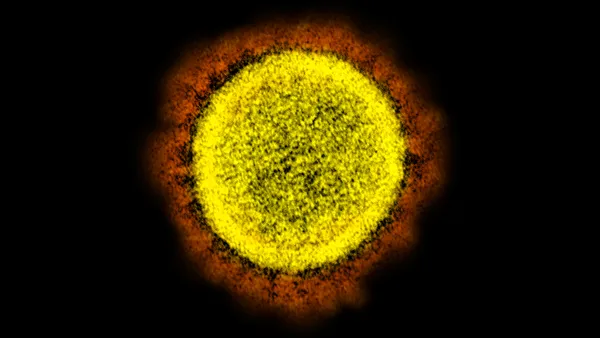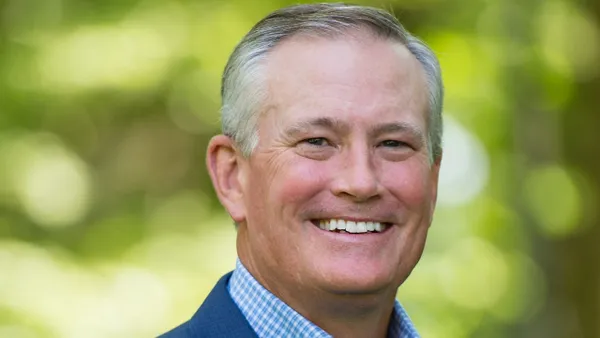Dive Brief:
- The Trump administration Monday said the federal government is halting shipments of Abbott's BinaxNOW COVID-19 Ag Card tests to eight states until they distribute the supplies they have already received, though at least one state said it is already doing so.
- HHS in late August awarded Abbott a $760 million contract for 150 million of the rapid, point-of-care antigen tests to be deployed to schools and vulnerable U.S. populations. The first shipments were delivered to states in late September, but some governors are not using the BinaxNOW tests quickly enough, according to HHS.
- Assistant Secretary of Health Brett Giroir told reporters Monday that "given where we are in the outbreak, we cannot let tests sit unused." However, a Virginia Department of Health spokesperson said HHS is "pausing" its BinaxNOW shipments despite the fact that the commonwealth has distributed over 52,000 of the tests.
Dive Insight:
The Trump administration has touted Abbott's BinaxNOW test as a quick, easy-to-use and inexpensive diagnostic that can increase the pace of U.S. COVID-19 testing at the point of care. Of the total 150 million rapid Abbott tests under the HHS contract, 100 million are designated to go to states and territories. So far, more than 33 million of those diagnostics have been shipped to governors.
"States are using their tests to meet their individual needs. Several states are distributing them directly to county-level health departments," Giroir said. However, the HHS testing czar called out eight states that "have not yet distributed BinaxNOW tests that have been sent to them," including Hawaii, Massachusetts, Nevada, New Mexico, North Dakota, Vermont, Virginia and West Virginia.
While Giroir said many of these states have "excellent" testing plans in place, he said HHS is pausing Abbott test shipments to the eight governors until they have started to distribute those tests. "We just don't want the tests to be sitting in a warehouse."
A Virginia DOH spokesperson responded in an email statement that HHS has "erroneously" asserted that the state has not distributed any of its BinaxNOW tests. As of Nov. 6, Virginia has distributed more than 52,000 of the Abbott tests to free clinics, the Department of Behavioral Health and Developmental Services, the Department of Corrections and the Department of Military Affairs.
The spokesperson added that planning for an additional 300,000 test distribution started more than two weeks ago. "Training sessions for use of the Abbott BinaxNOW tests have been scheduled and began last week. They will continue through the end of the month."
A Hawaii DOH spokesperson acknowledged that it has not distributed the Abbott BinaxNOW tests it received from HHS. However, it will begin distributing the tests to the state's four counties this week.
"Hawaii has relied largely on other tests, including PCR tests, while developing a comprehensive strategy for the best use of its Abbott BinaxNOW inventory. Long-term care facilities in Hawaii received their own shipments of Abbott BinaxNOW tests from HHS," the spokesperson said.
North Dakota Gov. Doug Burgum announced on Monday his state is distributing more than 17,000 BinaxNOW tests this week, including 12,000 tests to public health units for testing healthcare workers, first responders and public health staff, and will be ramping up distribution over the next few weeks.
In late September, when the Trump administration announced the initial shipment of 6.5 million BinaxNOW tests to states, Giroir said that governors have flexibility to use the Abbott tests as they see fit to reopen their economies and schools. Now, the HHS testing czar appears to be having second thoughts.
"Because of low cost, highly available tests like BinaxNOW are really critically important to save tens of thousands of lives. The same is true for other point-of-care antigen tests like Quidel and BD," he added.
However, FDA earlier this month issued an alert to clinical labs and healthcare providers about the potential for COVID-19 antigen tests to deliver false positives after receiving reports from nursing homes and other settings. While the agency did not name specific companies in the alert, the wording of its recommendations on the proper use of these kinds of diagnostics apply to the card-type tests sold by Abbott and the instrument-based kits from BD and Quidel.
Still, Giroir insisted on Monday's press call that false positives with BinaxNOW occur at a "very low level" of 0.1% to 1.5% which he said is "comparable or even better" than the gold standard polymerase chain reaction tests.
However, the Virginia DOH spokesperson said it has received anecdotal reports and concerns from one of its stakeholders about false positive results associated with the BinaxNOW tests, and that the state is looking to conduct additional validation studies to "gain first-hand knowledge of the performance of these tests in real-world populations."
The spokesperson noted that Abbott's BinaxNOW and other antigen tests from BD and Quidel were designed, and received FDA emergency use authorizations, for use primarily in symptomatic patients. "However, we realize in many instances these tests may be used by providers to 'screen' someone even if they are asymptomatic. It is in these populations that false positive rates are of highest concern," they observed.


